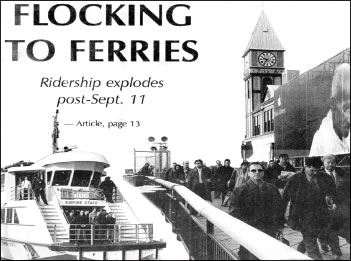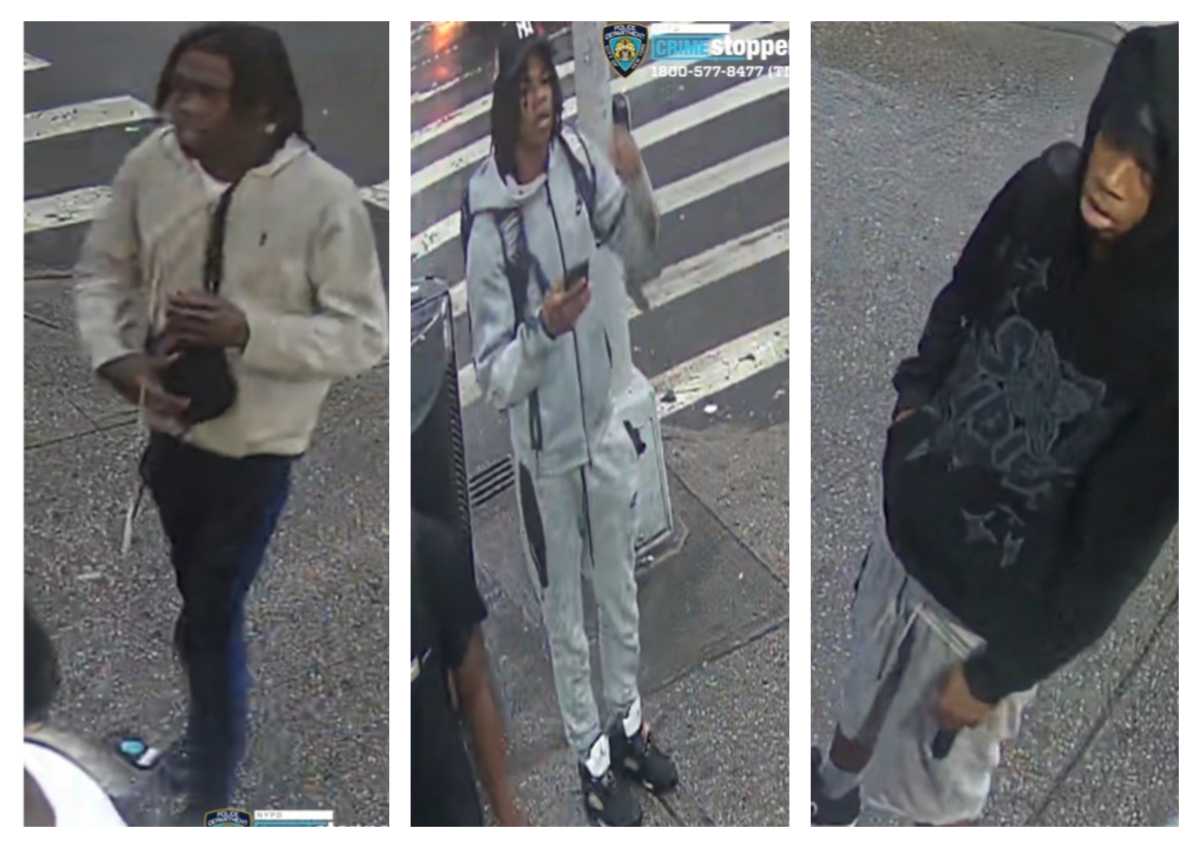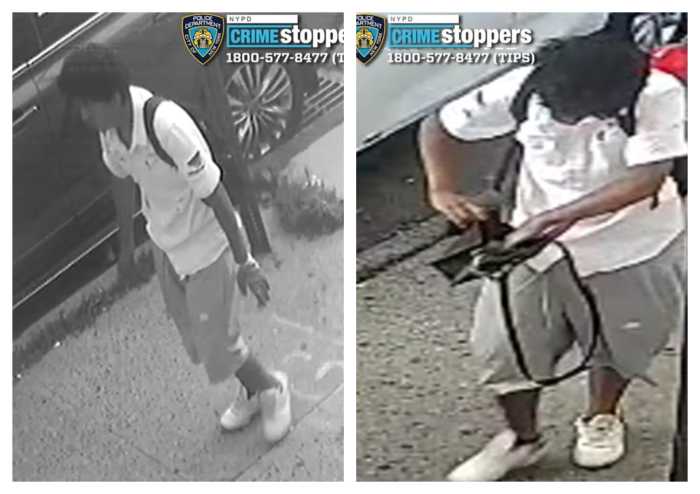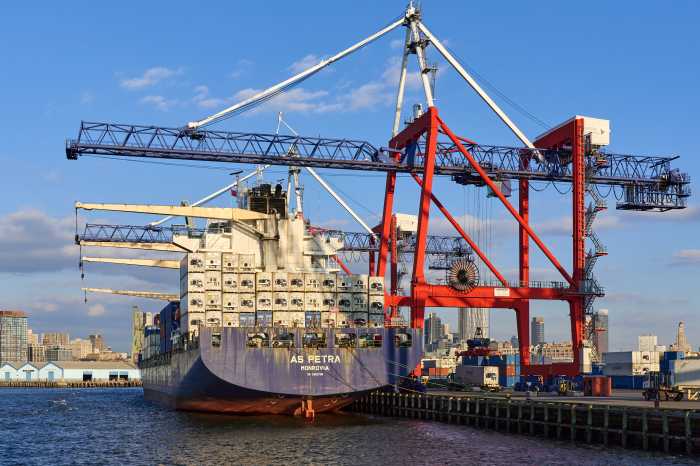By Diane Webber
“Flocking to Feries”
Downtown Express
Nov. 20-26, 2001
Private ferries were one of the few businesses that actually grew exponentially after Sept. 11, 2001. NY Waterway was a convenient alternative to the then-demolished PATH train over at the W.T.C., and Downtown ridership had tripled since Sept. 11. Conversely, the Staten Island Ferry saw a drop of 2,000 riders per day. Since the South Ferry station was closed, it made getting to the S.I.F. inconvenient.
“Prior to Sept. 11, [a ferry] was an alternate mode of transportation,” said George Cancro, who oversaw ferry operations for Port Authority. “On Sept. 11, it became a life-saving mode — people were jumping off of barges to get into boats. These days, ferries are the only prime, direct link from Lower Manhattan to New Jersey and lower parts of Brooklyn.”
The Port Authority had just built a $3 million, six-slip, covered ferry barge at Battery Park’s Pier A several weeks prior to the article’s publication date.
“Drug Center Delayed”
Downtown Express
November 25, 1991
“The Tribeca community’s opposition to the $6.3 million drug treatment center proposed for Franklin St. gained some momentum last week after Community Board 1 passed a resolution against the plan and succeeded in pushing back the purchase date of the building,” wrote Diane Webber.
The Tribeca Community Association, Franklin Street Block Association, and the Chambers-Canal Civic Association all centered their criticism of Project Return on economic grounds, claiming that the center was an “unwise real estate deal” and a waste of state tax money. The resolution included some conditions, which the groups were not happy about. These conditions called for a security guard to be stationed on duty at all times and for the creation of a community advisory board.
Not all Downtown residents were opposed. Maria Mancini, a Tribeca resident with a husband and two children, said that the opposition to the facility was ill-advised and based on fear and greed. “This hysterical opposition seems, at best, graceless for a liberal arts community of artists,” she said.
City Councilmember Miriam Friedlander and Assemblymember Deborah Glick both supported the center.
Robert DeNiro’s company reportedly threatened to move the Tribeca Grill and Tribeca Film Center out if the drug center moved in, but then said they supported Project Return’s program.
Opponents were also skeptical because Project Return had spent eight months looking at the Franklin St. site before notifying the community.
The center never opened.
Prepared by Helaina N. Hovitz

































